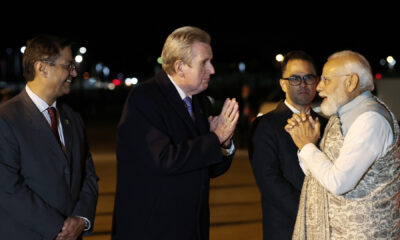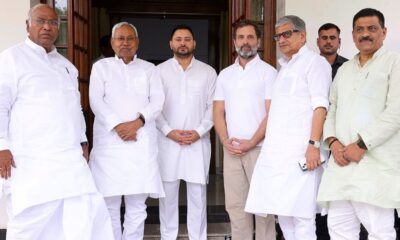India
New Parliament Inaugurated by PM Modi, Opposition boycott
Prime Minister Narendra Modi inaugurated the new parliament building on Sunday, May 28, 2023. The event was boycotted by opposition parties.
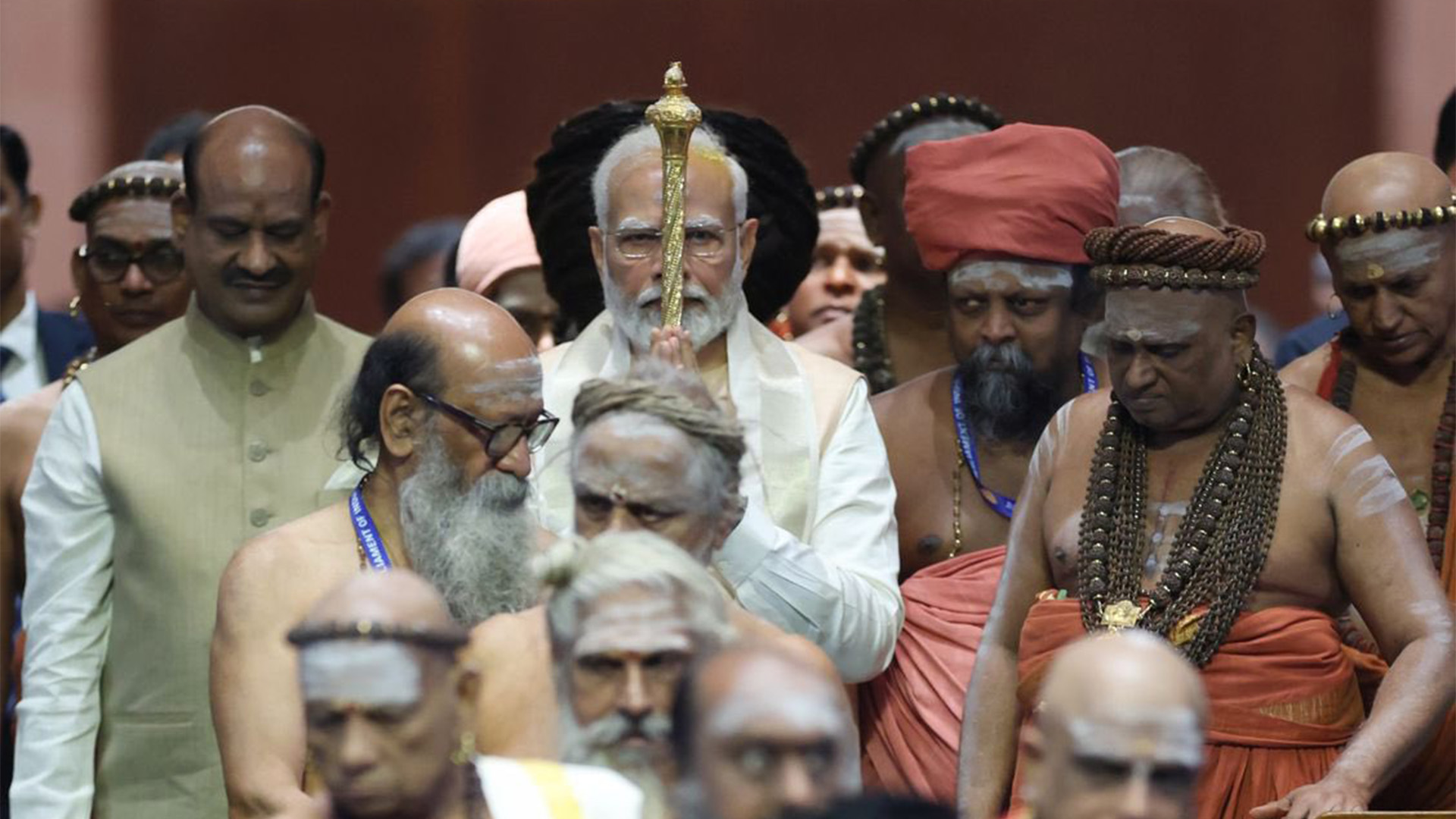
On Sunday, May 28, 2023, Prime Minister Narendra Modi inaugurated the new parliament building. The opposition parties boycotted the event, insisting that President Droupadi Murmu should have inaugurated the building.
The new parliament building is located in New Delhi and is intended to accommodate the increasing number of parliament members. It can accommodate 888 members in the Lok Sabha and 300 members in the Rajya Sabha.
The structure also features a magnificent constitution hall, a lounge for members of parliament, a library, multiple committee rooms, dining areas, and ample parking.
The new parliament building was constructed in two years at a cost of 971 billion. Bimal Patel, an architect who also designed the Sabarmati Ashram Museum in Ahmedabad and the National Museum of Indian Cinema in Mumbai, designed the structure.
Prime Minister Modi and Lok Sabha Speaker Om Birla began the inauguration ceremony with a puja. The Prime Minister then bowed before the historic sceptre ‘sengol’ that the Adheenam seers had given him. The Prime Minister then brought the sceptre into the Lok Sabha chamber and placed it next to the Speaker’s chair.
“Modi Inaugurates New Parliament Building, Opposition Parties Protest”
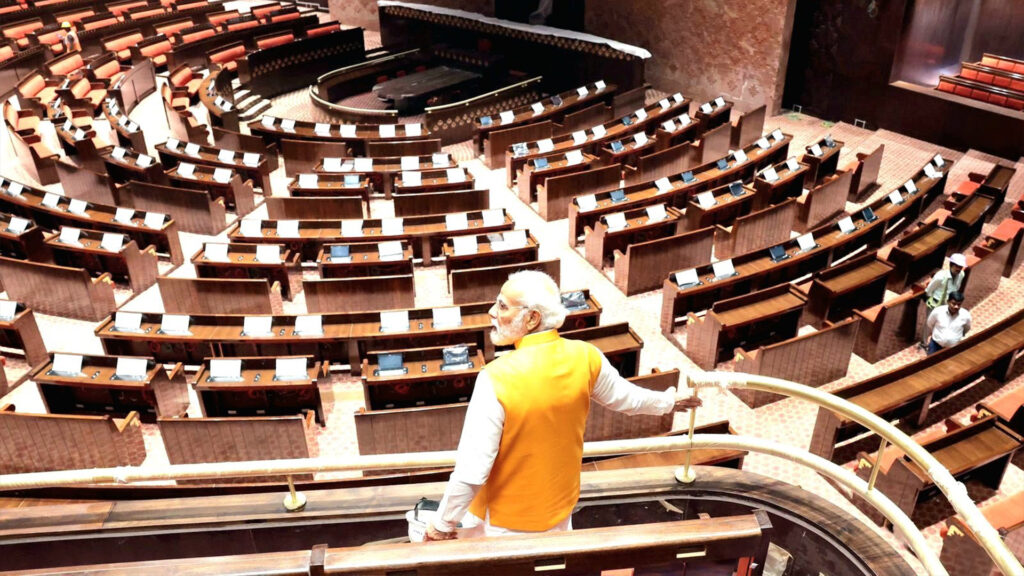
The Prime Minister then congratulated a group of construction workers who had contributed to the construction of the magnificent new parliament. This was followed by ‘Sarv-dharma’ prayers from representatives of various faiths.
Boycott by Opposition
The opposition parties boycotted the inauguration ceremony, alleging that it was a “publicity stunt” on the part of the ruling Bharatiya Janata Party (BJP). As a symbol of India’s democracy, they stated that the President should have been the one to inaugurate the building.
The inaugural ceremony was a grand affair despite the boycott. A large crowd of people greeted the Prime Minister and other dignitaries with cheers and waves as they passed. The ceremony was also broadcast live on Indian television, where it was viewed by millions of people.
The opening of the new parliament building is an important event in the history of India. This structure represents India’s growing commitment to democracy and good governance. It is also a testament to the labour and commitment of those who constructed it.
India
Jaishankar: Oppn shouldn’t politicize Parliament launch
External Affairs Minister S Jaishankar said that there should be a limit to politics, and that the inauguration should not be turned into a controversy.

The opposition parties were criticised by External Affairs Minister S. Jaishankar on Friday for skipping the opening of the new Parliament building on May 28. He said there should be a “limit to doing politics” and that the inauguration shouldn’t “be made a topic of controversy.”
“Some people are attempting to stir up conflict. But I think engaging in politics should be restricted to a certain degree. The entire nation should at the very least unite on such occasions to celebrate this festival, according to S Jaishankar.
The union minister, who is in Gujarat for a two-day visit, told the media that it would be “unfortunate” if the inauguration became the subject of a dispute. The opening of the new Parliament building, he continued, “should be seen as a festival of democracy and celebrated in that spirit.”
After more than a dozen parties refused to attend the inauguration of the new Parliament building on the grounds that President Droupadi Murmu should perform the honours rather than Prime Minister Narendra Modi, a verbal battle between the BJP and opposition parties ensued.
The National Democratic Alliance (NDA) retaliated against the opposition on Wednesday by pleading with the parties to rethink their stance and warning them that “the people of India will not forget their egregious insult to our democracy and to their elected representatives if they go ahead with their stand.”
“New Parliament building to be inaugurated on May 28, opposition parties to boycott event”
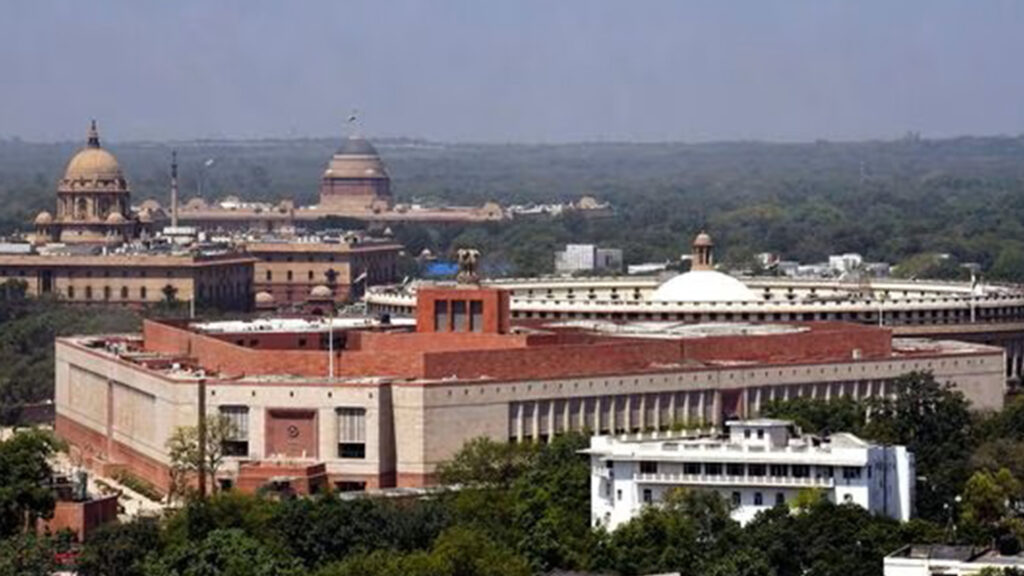
Supreme Court rejects PIL
A public interest litigation (PIL) that asked the Supreme Court to rule that the President should perform the inauguration was rejected earlier in the day. However, the court “is not inclined to entertain this petition under Article 32 of the Constitution,” petitioner advocate Jaya Sukin was informed by a bench of justices JK Maheshwari and PS Narasimha.
The government’s decision to construct a new Parliament building has drawn criticism from the opposition parties, who claim it is a waste of resources. Additionally, they claim that the government is attempting to weaken the authority of Parliament by reducing the number of Lok Sabha seats.
In order to accommodate the increasing number of MPs, the government has defended its choice by stating that a new Parliament building is necessary. Additionally, it has been stated that the new structure will feature cutting-edge amenities and be better suited for the efficient operation of Parliament.
A significant occasion on the political calendar of India is the dedication of the new Parliament building. The power of the government and the opposition parties will be put to the test.
India
Opposition to Skip New Parliament Building Inauguration
Several opposition parties have announced that they will not be attending the inauguration of the new Parliament building on May 28.
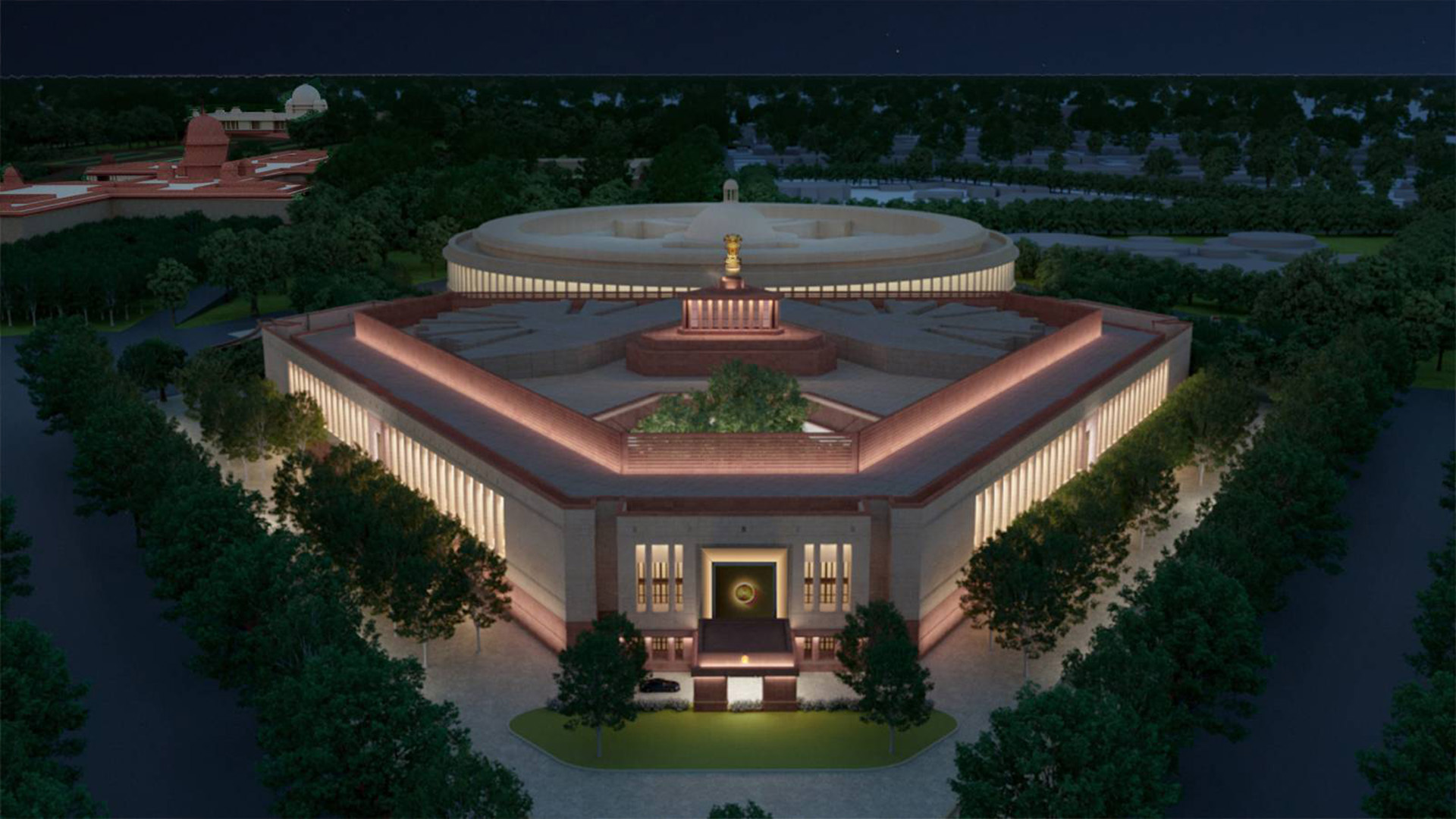
A number of opposition parties have declared that they won’t be present for the May 28 opening of the new Parliament building.
Prime Minister Narendra Modi’s planned inauguration of the structure has drawn criticism from the opposition parties.
Shiv Sena, Aam Aadmi Party, Trinamool Congress, Communist Party of India, and Nationalist Congress Party have all declared their intention to abstain from the inauguration.
The NCP has decided to support other opposition parties who share its views on this matter. AAP said, the decision was made in response to concerns expressed about the issue of not inviting the President to the inauguration ceremony.
To unite the opposition against the Centre’s ordinance to regain control over officers working for the Delhi government. Kejriwal plans to meet opposition leaders to mobilize against ordinance. They also joined to support opposition parties to abstain from the inauguration.
According to the TMC, the occasion will be “all about I, me, and myself.” The CPI general secretary said, his group won’t be present at the ceremony.
“Opposition parties boycott PM Modi’s inauguration of new Parliament building”
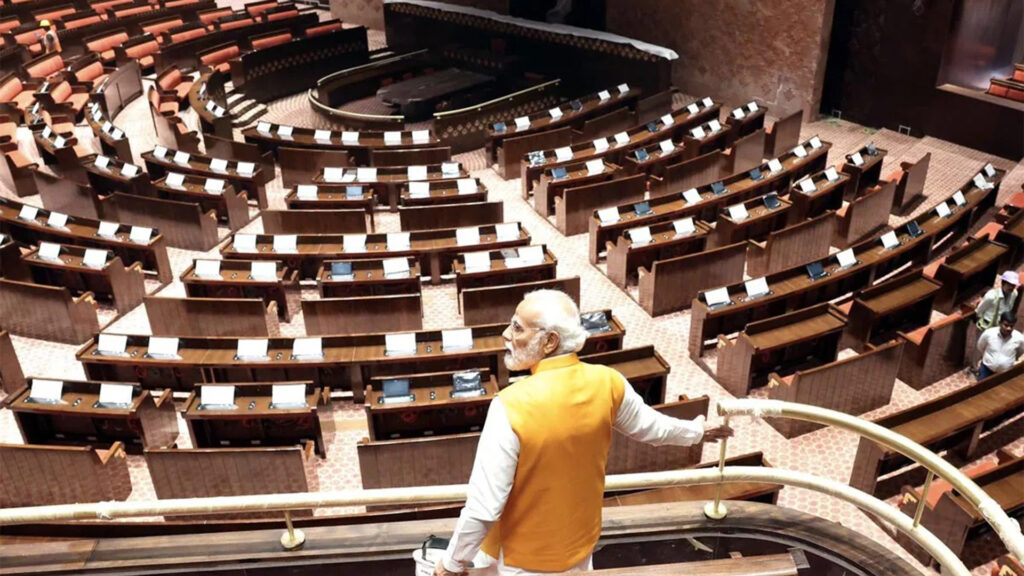
The boycott of the inauguration by the opposition parties is likely to exacerbate already tense tensions between the opposition and the BJP, which is currently in power.
The boycott will probably be interpreted as a manifestation of the opposition’s mounting annoyance with the ruling party.
Hardeep Singh Puri counters Opposition
Union minister Hardeep Singh Puri criticised the Congress for objecting to Prime Minister Narendra Modi’s dedication of the new Parliament building and noted that former PMs Indira Gandhi and Rajiv Gandhi had previously dedicated the Parliament annexe and library.
“In August 1975, then PM Indira Gandhi inaugurated the Parliament Annexe, and later in 1987 PM Rajiv Gandhi inaugurated the Parliament Library. If your (Congress) head of government can inaugurate them, why can’t our head of government do the same?” Hardeep Singh Puri told news agency ANI.
The Lok Sabha Secretariat’s invitation shows that Prime Minister Narendra Modi will inaugurate the new Parliament building on May 28 with Lower House Speaker Om Birla, despite opposition objections.
India
Kejriwal Meets Oppn Leaders to Mobilize Against Ordinance
Arvind Kejriwal, the Chief Minister of Delhi and the leader of the Aam Aadmi Party (AAP), to meet with three prominent Opposition leaders on Tuesday.

To unite the opposition against the Centre’s ordinance to regain control over officers working for the Delhi government. Arvind Kejriwal, the Chief Minister of Delhi and the leader of the Aam Aadmi Party (AAP), to meet with three prominent Opposition leaders on Tuesday.
In Kolkata, Kejriwal to meet with Mamata Banerjee, the Trinamool Congress (TMC) president and chief minister of West Bengal. After that, he is going to take flight to Mumbai to meet with Uddhav Thackeray, the Shiv Sena’s (UBT) chief minister in Maharashtra, and Sharad Pawar, the state’s former chief minister and the leader of the Nationalist Congress Party (NCP).
The gatherings are happening as the Centre encounters escalating opposition to its ordinance. The Indian Administrative Service (IAS) is one of the “services” that the Delhi government has executive control over, according to a Supreme Court decision. The Left parties have announced protests against the ordinance.
In order to create a unified front against the Centre’s ordinance, Kejriwal has stated that he will meet with other opposition leaders in the coming days. Additionally, he has declared that he will hold a “maharally” on June 11 in opposition to the ordinance.
“Kejriwal’s outreach to Opposition seen as sign of unity against Centre”
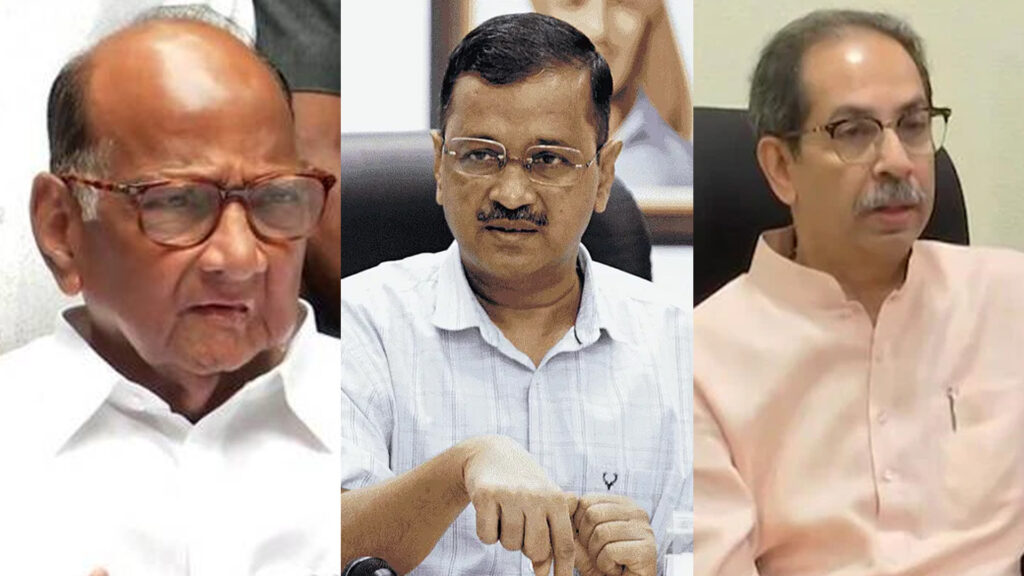
The Delhi government has been prevented from abusing its control over the bureaucracy, according to the Centre, which has defended its ordinance. The Centre has been charged by the Opposition with attempting to undermine India’s federal system of government.
Uncertainty surrounds Kejriwal’s meetings with the leaders of the opposition. The gatherings show that the Opposition is unified in its opposition to the ordinance proposed by the Centre.
Kejriwal to build opposition against Centre’s ordinance
Meetings between Arvind Kejriwal and Mamata Banerjee, Sharad Pawar, and Uddhav Thackeray are a significant development in the conflict between the Delhi government and the Centre. The meetings coincide with a period in which the Centre is encountering growing opposition to its ordinance, and they imply that the Opposition is united in its opposition to the Centre’s move.
Although the meetings’ results are uncertain, they are evidence that the Opposition is prepared to challenge the Centre. A unified front against the Centre in the upcoming elections may result from the meetings.
How the Centre will react to the Opposition’s escalating opposition is yet to be seen. Meetings with Kejriwal, however, indicate that the opposition won’t give up without a fight.
-
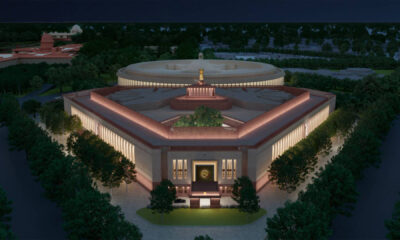
 India2 years ago
India2 years agoOpposition to Skip New Parliament Building Inauguration
-

 Fashion2 years ago
Fashion2 years agoNandita Das: Cannes is to Celebrate Films, Not Fashion
-

 Tech2 years ago
Tech2 years agoAdobe Announces New Generative AI Features in Photoshop
-
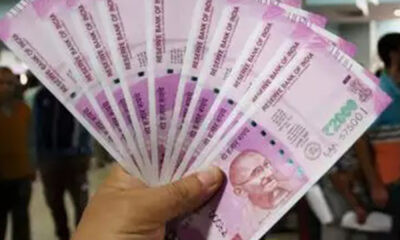
 India2 years ago
India2 years agoRBI to Withdraw ₹ 2,000 Notes from Circulation
-
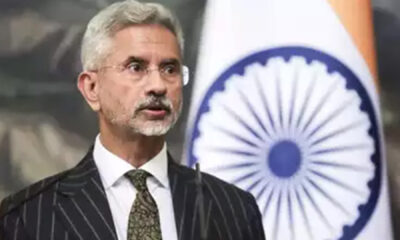
 India2 years ago
India2 years agoJaishankar: Oppn shouldn’t politicize Parliament launch
-
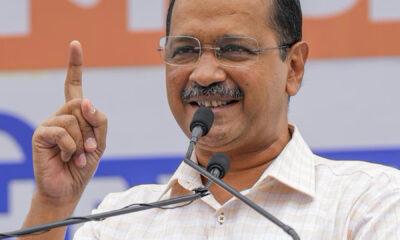
 India2 years ago
India2 years agoKejriwal Meets Oppn Leaders to Mobilize Against Ordinance
-

 Entertainment2 years ago
Entertainment2 years agoDrishyam Franchise to Expand to Korea with Official Remake
-

 Entertainment2 years ago
Entertainment2 years agoAdipurush: Will Prabhas’s Latest Film Be a Hit or a Miss?

